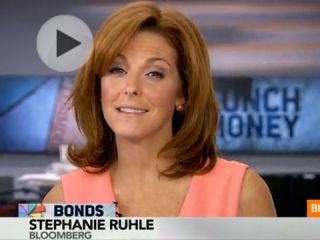[sgmb id=”2″]
A recent study conducted by Stanford University’s Graduate School of Education found that students could not differentiate between “fake” news, defined as sponsored content on web sites, from real news prepared by attributable journalistic sources and legitimate news outlets.
Based on their study of over 7,800 middle school, high school and college undergraduate students in 12 states who were asked to evaluate information presented in tweets, photos, comments and articles on social media, the researchers correctly concluded that this inability to tell real from fake news is a threat to democracy.
This sets the foundation for the very conservative, politically slanted financial journalism which dominates the airwaves today.
Based on one aspect of the study regarding photos, he lead author of the study, Sam Wineburg, said “they (the students in the study) didn’t ask where it came from. They didn’t verify it. They simply accepted the picture as fact.”
Facebook was also cited as being particularly susceptible to fake news, and even a sponsored news story on Slate got more credibility than a real news story. In this instance, the study found that but more than 80% of the middle schoolers who saw the Slate story believed the “sponsored content” article was a real news story. They could not tell the difference between fact and fiction.
Who Is To Blame?
Fake and intentionally misleading news stories are now being blamed for tipping the presidential election in favor of one candidate and against another. In financial journalism, however, there are stronger safeguards against misleading stories, but the industry is not above being duped for the sake of stock manipulation, company malignment, and reputational damage. But as the general and political news has become more politicized, there could be signs that financial news may be more politicized albeit in more subtle ways.
This can take the form of the subtle commentary, outdated journalism practices that now commonly accompanies straight news or

interpretations of actual verified news events that are not favorable to certain corporations, market segments and even capitalism itself.
Worse, in almost all cases, there is also a distinct philosophical filter that all of the major financial reporters (TV especially) use to present the news. This philosophy is neoconservative and espouses an anti-individual investor, blindly pro-Wall Street and pro-corporate position.
Take the case of the $300 trillion LIBOR price fixing scandal that has been unfolding since 2012. In one famous and unbelievable retort, CNBC economist Larry Kudlow, who is also a Trump advisor, said there were no victims in the LIBOR scandal, despite the fact that millions of car, consumer and home loans are pegged to the international benchmark. As a result of numerous international investigations into the scandal, banks were fined over $9 billion.
Certainly the very conservative Kudlow knew better, but why would he say something so unfounded on TV in front of millions of viewers? Maybe lying or attempting to deceive an unsuspecting public has become more acceptable. But even if this were the case, why aren’t more professional journalists willing to allow people to use government airwaves to disseminate propaganda and known falsehoods? No wonder the Stanford study found such dismal results.
Similarly, the very successful presidential campaign of Senator Bernie Sanders focused attention on the shortcomings of unregulated capitalism, tilted trade agreements and income disparity, yet the financial media was almost universally opposed to his candidacy and his very important message that income disparities are dangerous to capitalism.
So while fake news is more common on social media sites, it has made it to the fringes of financial journalism in the current form of unilateral, uncritical commentaries from both guests and news anchors.

For instance, Stephanie Ruhle, formerly of Bloomberg and now of CNBC, said when she was a Bloomberg anchor that the U.S. was not ready for a socialist president. As an anchor, was that news or opinion? Yet the fact that Sanders could have become president based on polls and if his campaign was no derailed by the Democratic establishment shows that Ruhl was totally mistaken.
Similarly, the conservative anchors on FOX, MSNBC, CNBC and CNN business shows all have a very narrow ideological opinion based on the perfection of free markets, the infallibility of corporations, the dangers of regulation and that individual investors are basically on their own and do not deserve regulatory protection. These same anchors have been very slow to address income inequality, the failures of unregulated capitalism and the world danger of global climate change simply because they do not jibe with their corporate-inspired political outlooks.
In another glaring example, for Obama’s entire presidency, these same anchors never focused on the intentional Republican effort to derail Obama and kill any attempts at fiscal policy that would have injected money into the economy using the basic approach of Keynesian economics. The reason: Keynesian economics is antithetical to monetary economics and runs counter to right-wing economic ideology. This is why financial columnists talked ad nauseam about the inscrutable Fed for the past eight years and avoided any discussion about fiscal policy. The investing public seems to have forgotten that it is fiscal and monetary policy which propels the economy. This set the foundation for the very conservative, politically slanted financial journalism which dominates the airwaves today.
So where does that leave financial journalism’s susceptibility to fake news? Even though there are regulations for filing fake stories with the intent of market manipulation, front-running and other profit-generating scams, the larger danger is that stories can be shaped with the intent of injecting flawed ideology into the markets and minimizing dissenting opinions about the markets, unregulated capitalism and the quality of national leadership.
Either way, professional financial journalists and investor-citizens should be aware that media concentration also lends itself to manipulation from copy-cat journalism and the unchecked self-perpetuating interest of profit. Either way, it’s another bad development for a democratic society.











